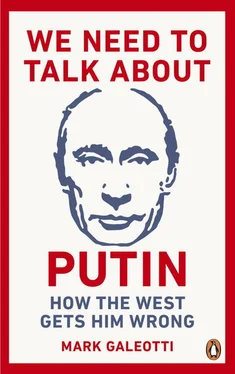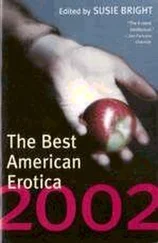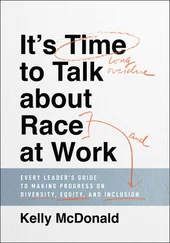For example, did Russia back Brexit? RT, its news agency counterpart Sputnik and a number of Russian commentators and diplomats certainly did, in addition to the infamous ‘troll farms’, where smart young Russians working to a script and on the clock, pump out social media posts pretending to be Rob from Ramsgate or Sarah from Swindon. Why on earth would they not? After all, it seems to tick so many boxes on the Kremlin wish list, dividing both Europe and Britain itself and creating a colossal distraction for years to come. But setting aside the question of how far they really affected the result of the referendum, it is hard to say whether or not Putin or the Kremlin specifically backed the campaign. They certainly did nothing to stop it, but a consequence of this bottom-up system is that it can often be hard to know where a specific initiative originated.
Does that really matter, though? Yes, it does. If we think of Putin as the subtle mastermind of the geopolitical chessboard, we will all too often give him more credit than he deserves. If people think you are powerful, you are powerful. Consider a deeply frustrating conversation I had with a Czech journalist in 2017, right before the Russians held a major military exercise called Zapad , or ‘West’, in conjunction with their ally, Belarus. At the time, a massive wave of hysteria was washing over the Western analytic community, partly generated by its own paranoia (and also by some alarmist pundits looking for some media attention), but encouraged by the Russians’ own strategic trolling. It was said that it would involve more than a hundred thousand troops (in reality, the number was not even half that), that it was really a plan to occupy Belarus and replace its president with a Russian puppet (nope), that it was a pretext to invade the Baltic states (again, no), and that it was a dry run for an all-out invasion of northern Europe (really, no). At the height of the frenzy, this Czech journalist asked with a straight face what price Putin would accept for a peace treaty. First of all, I pointed out, as far as I knew we were not officially at war. Secondly, what kind of a price was he talking about? He started a list: recognising Russia’s annexation of Crimea, forcing neutrality on Ukraine, and withdrawing NATO forces from front-line states.
I confess that I was astonished: Putin would not believe his luck if any of those massive and unjustifiable concessions were offered, especially on the basis of a long-scheduled and essentially defensive military exercise and some dramatic television footage of tanks rumbling across the Belarusian plain. This journalist, who was neither a moron nor a rookie, was articulating a minority opinion, but one that can often be encountered across the West: the sense that Putin is so dangerous and powerful that it is best to try and buy him off rather than confront him. In Chapter 6I will go into more detail as to how wrong this is, but every time we portray Putin as the evil genius behind everything that goes wrong, we play to this tendency. The French poet and essayist Charles Baudelaire once wrote that ‘the cleverest ruse of the devil is to persuade you he does not exist’; perhaps Putin’s cleverest ruse is to persuade you that he is behind everything.
If we persist with the idea that Putin is a strategic mastermind we will be looking for a grand design in the chaos that simply isn’t there. If it seems that Russia is moving in all kinds of different directions at once, it’s not a result of misdirection or because we haven’t seen the pattern – it’s because that’s exactly what Russia is doing. We’re looking for a great white shark, a single, murderous killing machine, but while we’re doing that, a shoal of piranhas, individually much less formidable, yet much harder to predict and repel, is eating the flesh from our backs.
Finally, we should not try to predict Russian strategy based purely on Putin himself – his tells and tics, his habits and his hobby horses. In fact, the political entrepreneurs in his Russia are of every sort, from businesspeople to storytellers, computer hackers to gangsters. In October 2016, for example, there was an attempted coup in the small Balkan state of Montenegro that was apparently intended to try and prevent it from joining NATO. Russian intelligence officers were involved, but according to Bulgarian intelligence, the first initiative came from a Russian not-quite-oligarch – let’s call him a minigarch – called Konstantin Malofeyev. A Russian Orthodox zealot and an ultranationalist, Malofeyev came up with the idea and pitched it in Moscow until the government gave it the green light. In some ways the system works in the same way as the start-up economy: lots of people with ideas – some good, some bad, some already being tried on a small scale and others that exist purely in their creators’ imaginations – all try to interest the one big investor in the Kremlin. Trying to predict what ideas will come out of this process based on Putin’s character is a completely futile task.
Instead, Putin’s state generally responds to opportunities. A British prime minister calls for a referendum on leaving the European Union; American Democratic Party officials practise poor computer security; people in the West begin to lose faith in their political systems and elites; opaque financial structures allow ‘dark money’ to distort economies and corrupt politics; social media bypasses the traditional press. Russia created none of these opportunities, but has demonstrably tried to exploit them. In effect, we in the West define what Putin’s state does to us, while he is simply taking advantage of the failures, broken promises and stress points in our systems.
So, rather than looking for a grand and complex strategy, we need to accept that Putin, at least abroad, is in effect following the strategy that Mark Zuckerberg encouraged at Facebook – ‘move fast and break things’. However, instead of Silicon Valley’s goal of ‘disruptive innovation’, Putin is looking for innovative forms of disruption. He encourages his agents and adhocrats to seize opportunities, fully aware that some, and maybe most, will fail. But that doesn’t matter, because the very act of launching these attacks brings chaos and uncertainty, and when they do succeed, the judoka can make his move.
Chapter 2: Putin Was KGB, But Not as You Know It
At the end of 1999, Putin was prime minister, and would soon be elected president. He was attending a party held at the Lubyanka, the nineteenth-century building which had been designed for an insurance company but gained infamy as the headquarters of successive Soviet secret police agencies. Even today, although the main offices of the Federal Security Service (FSB), the KGB’s current successor, are in an anonymous grey block on the other side of the road, it still uses the Lubyanka, and the gala event was being held there to celebrate the founding of the Cheka , the very first Bolshevik political police.
‘Dear comrades,’ Putin toasted, ‘I can report that the group of agents you sent to infiltrate the government has accomplished the first part of its mission.’ He was not entirely joking. Putin had not only been in the KGB, the notorious Soviet intelligence and security agency – he had been a fan of it from an early age. He had wanted to join while still at school, and went to the KGB’s regional headquarters in the so-called Bolshoi Dom – ‘the Big House’ – on Liteyny Avenue, close to the Neva River in Leningrad’s central neighbourhood. This slab-sided building had an infamous reputation, having previously been the offices of Stalin’s secret police, where supposed enemies of the state had been executed in blood-drenched basement rooms and through which a steady flow of victims had passed to the Gulag labour camps. Yet teenage Putin popped by for a chat. One can only guess at the reaction of the KGB officer who spoke to Putin, but he was told to go away and either do his military service or graduate from university first. What degree was best, Putin asked? Any would do, but when pushed the officer suggested law. And so it was: Putin went to Leningrad State University, graduated with a law degree in 1975 and joined the KGB. He would remain in the service for seventeen years, and these were the years that many feel shaped him. ‘I looked into Mr Putin’s eyes,’ US Senator John McCain once said after meeting him, ‘and I saw three things: a K, a G and a B.’
Читать дальше












